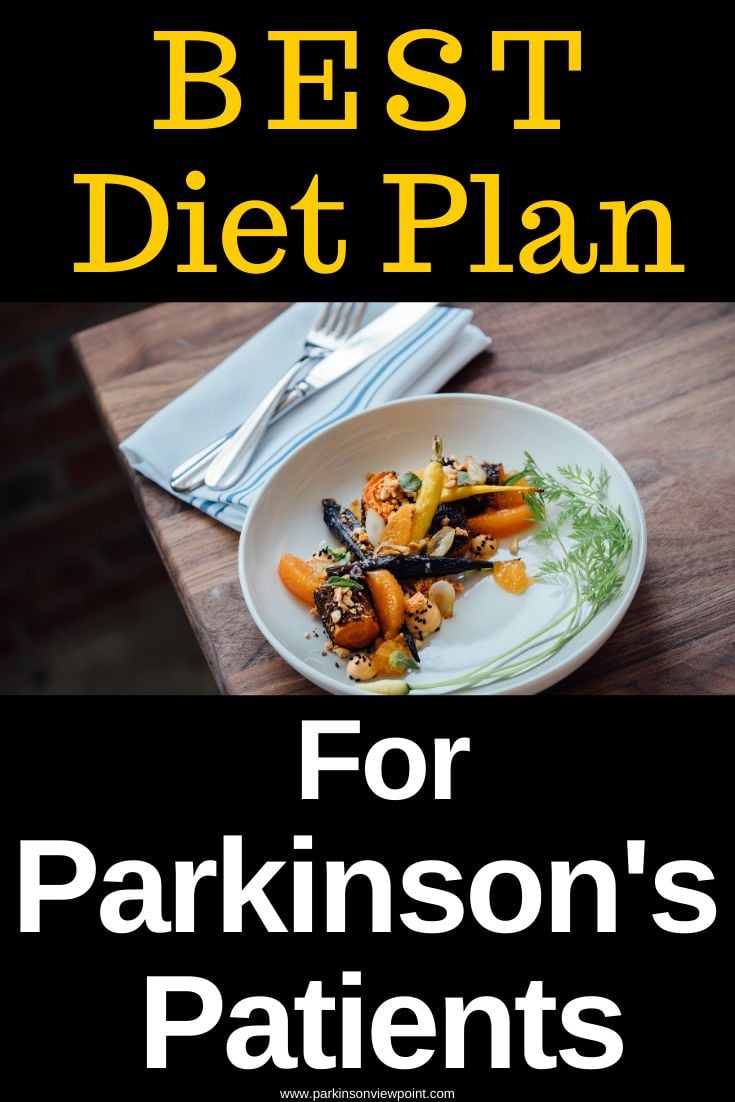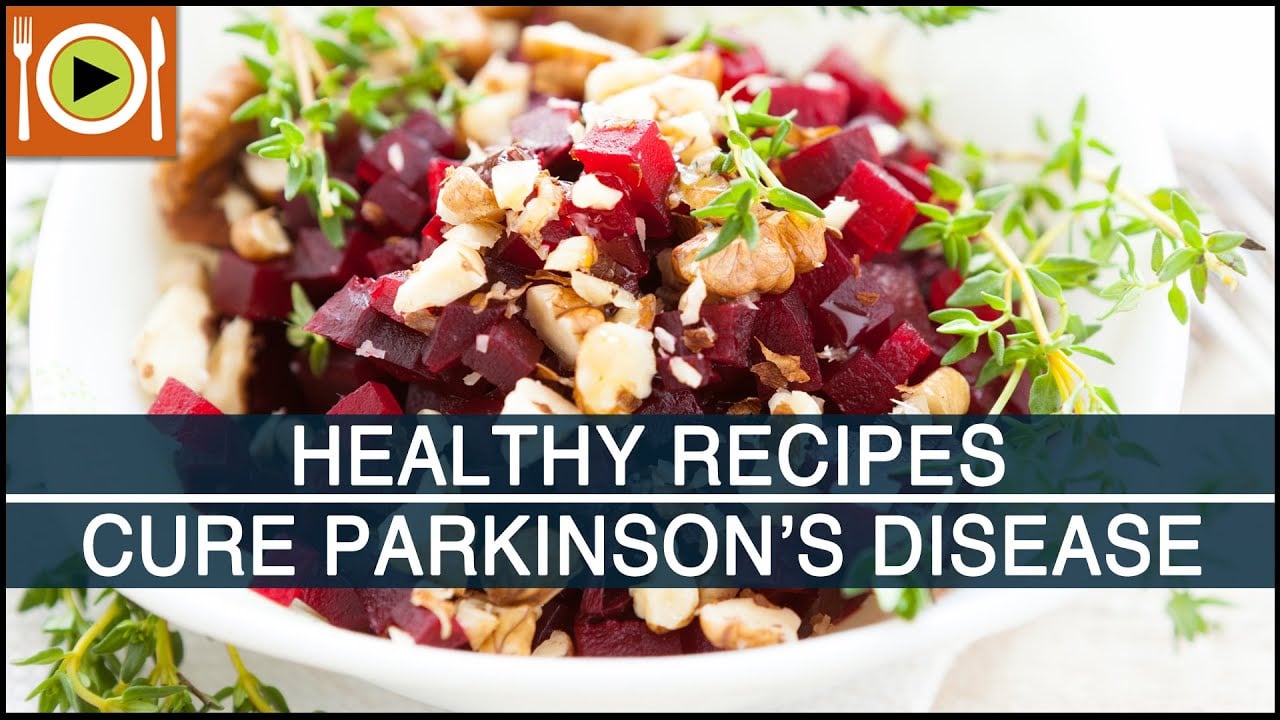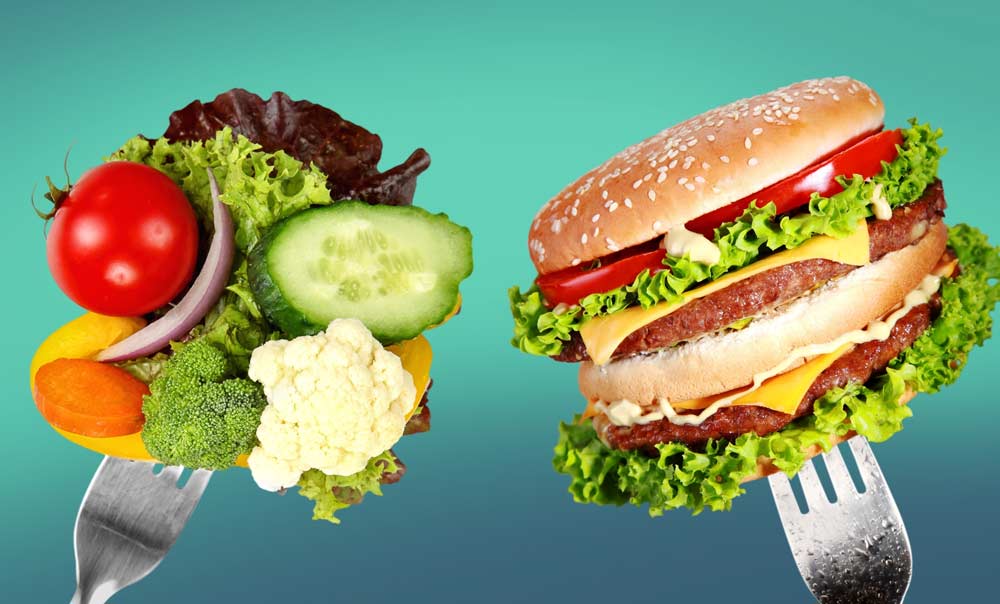Easy Ways To Implement The Diet
Okay, you are sold on the benefits of the Mediterranean diet and want to give it a try. But doing a complete mealtime overhaul may feel overwhelming. Dont fret! As the saying goes, “Rome wasnt built in a day.”
Whatever your starting point may be, making small positive changes are still steps in the right direction. If you are new to the Mediterranean game, check out these easy-to-implement ways I tell my clients to embrace this lifestyle.
Foods For Pd Symptoms
Nutrition adjustments can help ease some of PDs most common symptoms, both of a motor and a non-motor nature. If you experience digestive difficulties, especially constipation , try to drink more fluids, and increase your fiber intake with fruits and vegetables such as kiwi, apples, prunes, dates, figs, radishes, berries, nuts and beans. Probiotic supplements like Bifidobacterium , that add healthy bacteria to the gut, may also be helpful.
If drinking more water leads to urinary incontinence or urgency, increase your fluid intake by eating foods with a high water content such as tomato, cucumber, radish, celery, broccoli and grapefruit. If you struggle with weight loss or loss of appetite, try increasing your calorie intake by eating nuts and foods that contain healthy fats, like coconut and avocado. To stimulate your appetite, try bitter greens like collard and beet greens, or spicy foods. Exercise can increase muscle mass and hunger.
Fatigue and sleep difficulties are also common symptoms of PD. The culprit of these problems may be sugar. When eaten during the day, sweets briefly boost energy, but make you sleepy later.
When eaten in the evening, they may keep you awake.
Another reason to limit sugar is that it causes a spike in blood glucose, which contributes to inflammation. When reaching for a snack, try foods that offer a balance of protein and fat, like nuts or avocado, or whole-grain complex carbohydrates.
Forget Fava Beans For Parkinsons
Fava beans contain an amino acid known as levodopa. Levodopa is an active ingredient in some Parkinsons medications. Seems like a good reason to eat a lot of fava beans, right?
Nope. Dr. Gostkowski explains that the amount in the beans is tiny compared to whats in your medication. You cant eat enough fava beans to have any effect on your symptoms, he says.
Bananas also have levodopa in them, Dr. Gostkowski says. But, like fava beans, its not possible to eat enough bananas to affect PD symptoms. Of course, if you like fava beans or bananas, enjoy! But dont go overboard or expect them to work like medication. Eat a variety of fruits, veggies, legumes and whole grains for balance.
Also Check: Parkinson’s Bike Therapy
Bump Up Your Fiber Intake
A high-fiber diet is a proven way to avoid constipation, a common problem for people with PD.
Parkinsons can slow down the intestines and cause constipation, Dr. Gostkowski says. Fiber helps keep things moving. There are plenty of high-fiber foods out there, so choose your favorites. Women should aim for 25 grams of fiber per day, and men should get 38 grams.
Optimise Your Diet Reduce Your Toxic Load

While the cause of Parkinsons is not known, environmental toxins such as pesticides and herbicides are implicated. Researchers have found levels of these chemicals to be higher in the brains of Parkinsons sufferers and incidence of Parkinsons is higher in areas with greater use of these chemicals. It makes sense to avoid any environmental toxins that you can. Also, consider your intake of dietary toxins such as alcohol and caffeine avoiding or reducing these may reduce the load on your bodys detoxification pathways.
Recommended Reading: What Foods Should Be Avoided When Taking Levodopa
Diet And Nutrition For Parkinsons Disease: What To Eat
Food is an important part of overall health and wellness, and thats true when youre managing Parkinsons disease, too. While symptoms like nausea, swallowing issues, or tremors not to mention diet restrictions can make meal times more challenging, eating a healthy, balanced diet might be more important for you than ever.
Specifically, a healthy diet helps your prescription medications to work optimally, keeps your bones strong, fights constipation and weight loss, and helps maintain your physical health, according to the Parkinsons Foundation.
Diet and nutrition dont replace medication, but they work in tandem with it, says Indu Subramanian, MD, a neurologist at Ronald Reagan UCLA Medical Center in Los Angeles who specializes in wellness and integrative medicine approaches. Certainly, a healthy lifestyle, including a balanced diet, helps you feel better, whether or not you have Parkinsons disease.
Who Can Give Me Advice On Diet And Eating Problems
Depending on the country you live in your doctor may be able to refer you to any of the following specialists to give advice on diet or eating problems.
- A dietitian can provide advice on all aspects of nutrition and diet. They will advise on maintaining a healthy diet to suit your needs and symptoms, bearing in mind the medications you take
- A speech and languagetherapist will be able to help you with swallowing problems and strategies to overcome these, as well as speech difficulties. They can also help eliminate any other possible causes of swallowing problems
- An occupational therapist will be able to look at ideas and equipment to make food preparation and mealtimes easier .Simple changes to your kitchen and dining area can make all the difference, for example:
- adding grab rails to help you move around safely
- moving the position of equipment so that food preparation tools are grouped together so you dont need to move around as much
- buying a blender, microwave or small chopper, for example, to ease preparation and reduce the amount of time spent manually preparing food.
Also Check: Weighted Silverware
Foods That Are Hard To Chew
Many people with Parkinsons have difficulty with chewing and swallowing foods. A person needs medical help if this is the case. A speech and language therapist may be able to help a person overcome this issue.
However, if a person is finding certain foods hard to chew and swallow, they may wish to avoid these foods.
Such foods include:
- dry, crumbly foods
- tough or chewy meats
If a person does wish to eat chewy meats, they could try using gravy or sauce to soften them and make eating easier.
They could also try chopping meat into smaller pieces or incorporating meat into casseroles, which can make it more tender.
Having a drink with a meal can also make chewing and swallowing easier.
Helpful Food For Parkinson’s
Here are some guidelines on which foods help best manage Parkinsons disease.
- Vary your food. Eating different types of food will ensure that you consume the essential vitamins and minerals that you need to manage Parkinsons disease.
- Increase your fiber intake. Consuming high-fiber vegetables and other food aids digestion, eases constipation, and helps you feel full longer.
- Eat more whole grain foods such as brown rice, pasta, whole wheat bread, oatmeal, or crackers.
Read Also: Parkinson’s Hallucinations Commercial
A Complete Parkinsons Diet Guide
When living with Parkinsons, diet can help you stay healthy and may help with some of the symptoms. Eating a healthy diet will lead you to not only feel better but will also lead to more likely living a longer and more full life.
Before we get started it is important to say that the only evidence-based diets that are shown to be good for Parkinsons are general healthy diets that work for everyone regardless of Parkinsons. The Mediterranean diet is one of the healthiest diets out there, which is why we recommend it to those with Parkinsons.
So, with that said here are some tips and foods you should consider including in your diet if you have Parkinsons.
The Research: The Mediterranean Diets Role In The Management And Progression Of Parkinsons
Eating a plant-based diet also provides many benefits to people living with Parkinsons. Numerous studies have explored the eating plans effects on aging and cognitive function, including a systematic review published in Nutrients in 2017 that found that the Mediterranean diet could play a major role in cognitive health and risk of Alzheimers disease and dementia. Since cognitive changes are common as Parkinsons progresses, choosing foods that benefit your brain and can slow cognitive decline is one way to influence your Parkinsons journey positively.
The guts impact on Parkinsons also plays a role in managing and possibly slowing the progression of Parkinsons. Studies have found lower levels of Prevotella, a good gut bacterium, in people with Parkinsons, along with higher levels of inflammatory bacteria other studies have shown that eating a whole-food plant-based diet creates a gut environment where Prevotella and other healthy bacteria can flourish. The more good bacteria present, the better your overall health and your ability to live well with Parkinsons every day.
In addition, eating a plant-based diet can help you manage multiple symptoms of Parkinsons, including:
Don’t Miss: Sam Waterston Tremor
The Research: The Mediterranean Diets Role In The Prevention And Delayed Onset Of Parkinsons
Consistent findings show that the Mediterranean diet may reduce the risk of many diseases, such as stroke, hypertension, heart disease, diabetes, depression, dementia, and cancer, proving its global impact on health.
What about its relationship to Parkinsons in particular? Eating a Mediterranean diet is associated with a lower risk of Parkinsons and later age of Parkinsons onset. One of these studies, recently published in the journal Movement Disorders, highlights the strong correlation between eating a plant-based diet and delayed onset of Parkinsons, perhaps because the diet reduces inflammation in the body.
The study focuses on the connection between Parkinsons, the microbiome , and the brain. The study authors compare the microbiome to a giant factory that produces beneficial chemicals. Your input affects how the microbiome works. When this input is primarily plant-based foods, the microbiome can flourish and inflammation, suggested as a root cause of Parkinsons, can be reduced.
Nlrp3 Inflammasome Activation Mechanism

There is a substantial amount of data demonstrating the importance of the NLRP3 inflammasome in PD. Recent post mortem studies in PD patients show that the NLRP3 inflammasome is significantly upregulated in the SN of PD patients . This upregulation in NLRP3 was also observed in mouse models of PD and AD and it appears to be important in disease pathogenesis. Specifically, inhibition of NLRP3 protects against neurodegeneration in all rodent models of PD tested including injection of pre-formed -Syn fibrils , rotenone, and MPTP models . Similarly, knocking out NLRP3 in an AD animal model protects mice from developing AD-like behavior and brain pathology . Thus, activated NLRP3 inflammasome appears to be a key driver of neuroinflammation in PD . In addition, NLRP3 levels also appear to increase with other factors such as age and consumption of a Western diet, it could be that the increase in NLRP3/IL-1b reduces the resiliency of the brain to respond to a secondary insult such as gut-derived endotoxemia from microbiota dysbiosis and/or intestinal barrier dysfunction .
Read Also: Does Sam Waterston Have Parkinsons
For People Living With Parkinsons Disease Exercise May Be One Of The Most Powerful Tools To Fight Some Symptoms And To Slow The Diseases Degenerative Nature
In addition to maintaining overall physical and emotional health and well being, exercise tends to minimize some of the primary and secondary symptoms of early onset Parkinsons. Though exercise is not a cure, it can help people living with Parkinsons disease maintain muscle tone and function, remain flexible, and improve overall mobility.
While the precise role exercise plays in delaying the progression of the disease is still being researched, studies consistently report that those with Parkinsons Disease who exercise regularly tend to do better than those who do not. When it comes to exercise, being younger has its advantages. Younger people are usually stronger and better able to maintain a regular exercise program over time.
Many young people with Parkinsons Disease have found that they are able to combine their exercise with grass roots fundraising efforts. From the well-known walk-a-thons held across the country to the young men and women who have walked marathons to raise funds, finding sponsors who will cheer you on every step or mile can help you remain committed to an exercise plan.
General Advice For People Who Have Parkinsons:
Don’t Miss: Yopd Life Expectancy
Foods Containing Saturated Fat And Cholesterol
Some studies suggest that dietary fat intake may increase the risk of Parkinsons.
Although having a higher intake of cholesterol can elevate a persons Parkinsons risk, having a higher intake of polyunsaturated fatty acids may reduce the risk.
Therefore, a person with Parkinsons may wish to reduce their intake of cholesterol to help control the symptoms of the condition. They may also wish to reduce the amount of saturated fat in their diet.
However, further studies are required to explore the link between dietary fat and Parkinsons.
Parkinsons And Weight Gain
Parkinsons medication does not tend to make people gain weight, but a small number of people may experience impulsive and compulsive behaviour. This is a side effect of some Parkinsons medication, particularly dopamine agonists and, in some cases, levodopa.
Impulsive behaviour is when a person cant resist the temptation to carry out certain activities. These are often activities that give an immediate reward or pleasure, such as gambling, hypersexuality and overeating.
So, someone may eat large amounts of food in a short period of time because they cant control their appetite, and as a result, they gain weight.
If you think youre experiencing this behaviour, speak to your GP, specialist or Parkinsons nurse.
We dont advise anyone to stop taking or to change their Parkinsons medication without the advice of their specialist or Parkinsons nurse.
Any changes have to be made slowly and gradually, and should always be carried out and reviewed by a specialist, because of the risk of side effects and withdrawal symptoms.
Someone experiencing impulsive or compulsive behaviour may not realise they have a problem. So it’s important that their carer is aware of these side effects.
Deep brain stimulation and weight gain
Some people with Parkinsons may put on weight quickly after having deep brain stimulation, a surgery sometimes used to treat the condition.
If you think youre experiencing this behaviour, speak to your GP, specialist or Parkinsons nurse.
Read Also: Judy Woodruff Health Problems
Eat Plenty Of Protein But Not With Levodopa Medications
If youre taking a levodopa medication, your doctor may tell you to avoid protein when taking your meds. Both animal and plant protein can interfere with the absorption of levodopa medications.
But you should still eat plenty of protein. Just be strategic with the timing. Dont take levodopa medications with meals, Dr. Gostkowski says. Its best to take it on an empty stomach either 30 minutes before your meal or an hour after eating.
If you get nauseous from the medication, eat a small amount of starchy food with it, such as crackers. Make sure whatever you eat with your medicine doesnt have protein. Its a misunderstanding that people with Parkinsons should avoid protein, Dr. Gostkowski says. You definitely need protein in your diet. Just dont eat it when youre taking your levodopa medication.
What About Other Drinks
Parkinsons patients should avoid drinking sugar-sweetened beverages. These products can negatively affect disease symptoms. Especially, diet soda could be very toxic.
Moderate consumption of caffeine and alcohol shouldnt cause any harm but their high amount may possibly actuate adverse effects in patients. Few clinical trials have reported that daily consumption of coffee may improve some of Parkinsons symptoms. Therefore, researchers often encourage the use of moderate amounts of coffee in Parkinsons disease.
Recommended Reading: Adaptive Silverware For Parkinson’s
So What Does Nutrition Have To Do With Parkinsons
1. The neurotransmitter dopamine is made in the body from amino acids which are the building blocks of protein. Every time we eat a protein rich food we take in protein, which the body breaks down into its component amino acids. Two amino acids are converted in the body into L-Dopa, which is then converted into dopamine in the brain.
2. Nutrient co-factors are required for each stage of this conversion process, so deficiencies of these may reduce dopamine production.
3. L-dopa medication competes for absorption with dietary amino acids, therefore the timing of taking L-dopa and the eating of protein needs to be managed for optimal absorption and effectiveness of the drug and the reduction of side-effects.
Therefore, the nutritional therapy approach to Parkinsons includes:
1. Supporting dopamine production by ensuring adequate precursors and co-factors
2. Considering drug-nutrient interactions to enhance effectiveness and reduce side-effects
3. Optimising nutritional status and addressing co-morbidities . These co-morbidities include constipation, depression, fatigue, and insomnia.
Getting The Right Balance

A balanced daily diet will contain a wide variety of foods from the five food groups listed below. Ideally you should eat food from at least three different groups at each meal, making sure that you cover all groups throughout the day. This may not be possible if you take certain medications so always follow any instructions you are given regarding medication and diet.
General dietary recommendations currently include:
- maintaining energy intake at 25-30 kilocalories per kilogram of body weight, with additional calories if you experience dyskinesia
- a carbohydrate to protein proportion of at least 4-5:1
- a recommended daily protein allowance of 0.8g/kg of body weight.
You May Like: On Off Phenomenon